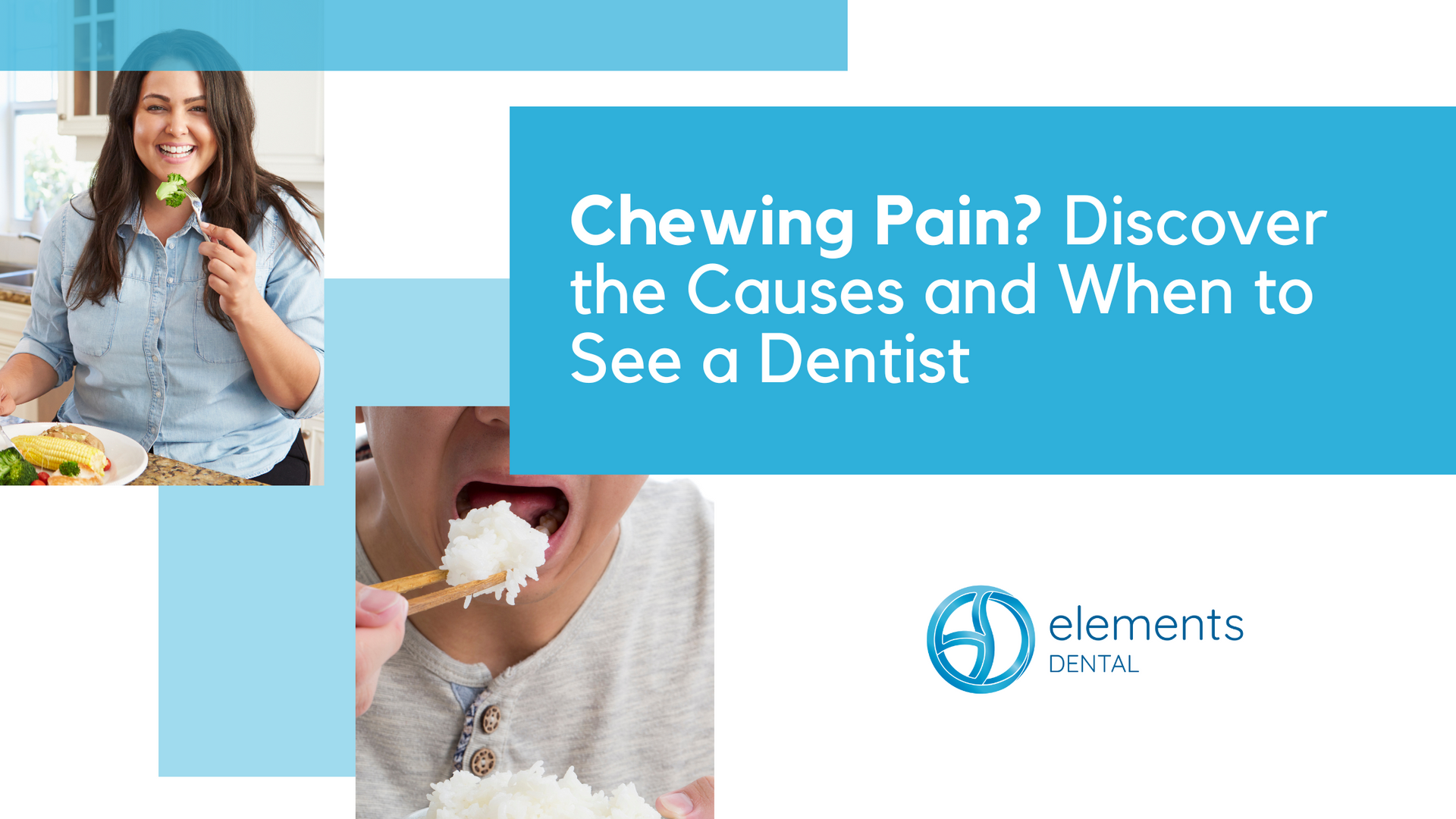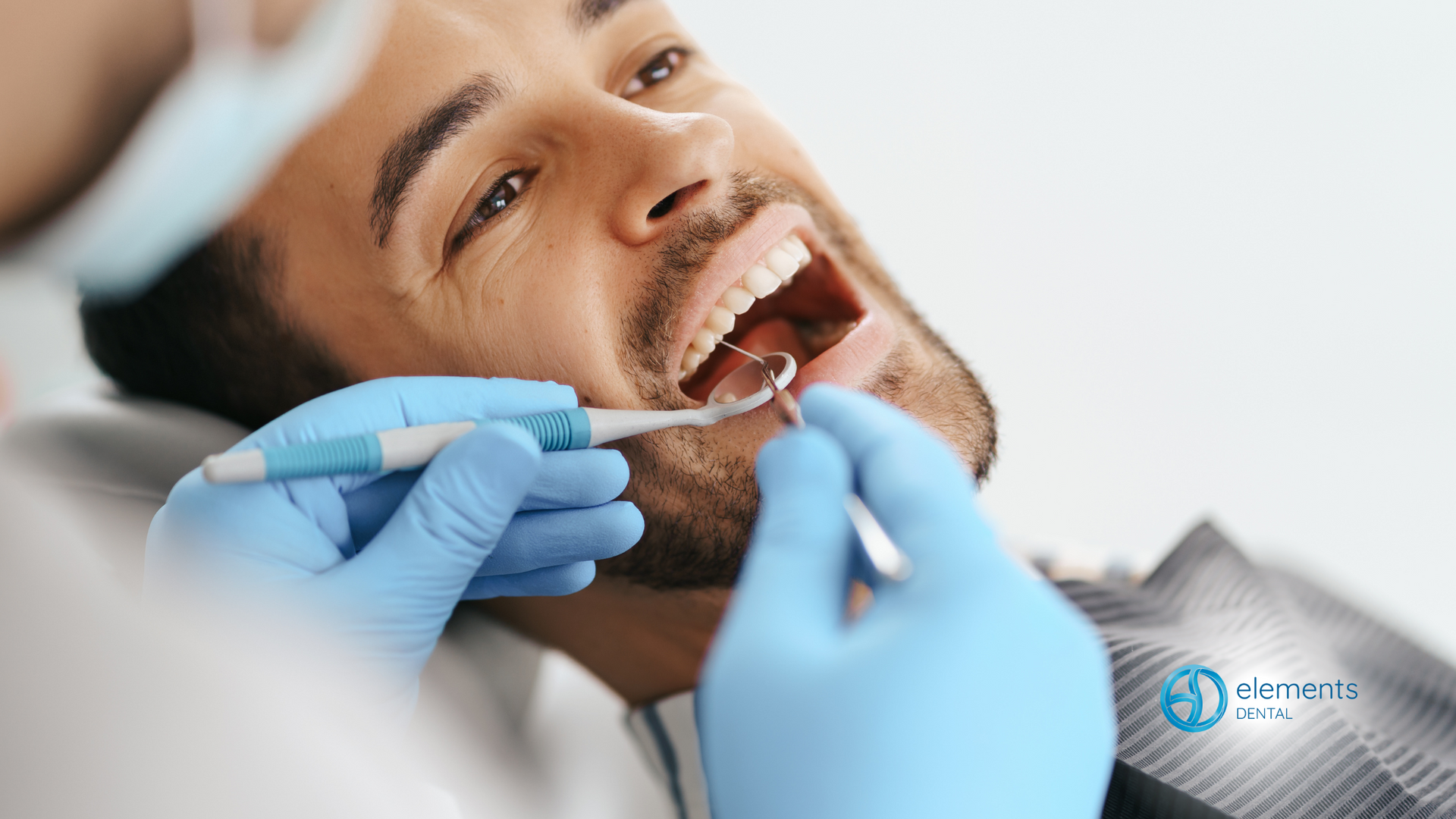Chewing Pain? Discover the Causes and When to See a Dentist

Source: Dr. Marketing
Experiencing pain while chewing can be frustrating and disruptive to your daily life. Whether it is a dull ache or a sharp discomfort, this type of pain often signals an underlying dental problem that should not be ignored. While occasional sensitivity might not warrant immediate concern, persistent or severe pain is often an indicator of a deeper issue that requires professional attention. Addressing the problem early can save you from more extensive and costly treatments down the line.
In this article, we will explore the common causes of pain when chewing, how to recognize when it is time to visit our dentists in Victoria, and the steps you can take to maintain your oral health.
Understanding the Causes of Chewing Pain

There are many reasons why chewing might become painful. Identifying the cause is the first step toward finding relief. Below, we dive into the most common culprits behind chewing discomfort.
Tooth Decay and Cavities
Tooth decay is one of the most common dental issues that can cause pain while chewing. When cavities develop, they create holes in the enamel, exposing the sensitive layers of the tooth beneath. As a result, chewing places pressure on the weakened area, leading to discomfort or even sharp pain. Untreated cavities can worsen over time, eventually affecting the tooth’s nerve and requiring more intensive treatment like a root canal.
Cracked or Fractured Teeth
A cracked tooth is another frequent cause of chewing pain. Cracks can occur from biting into hard foods, experiencing trauma to the mouth, or grinding your teeth. Even small fractures can cause significant discomfort, particularly when the crack extends into the tooth’s root. The pain is often triggered by the pressure of biting down, and it may come and go depending on how the tooth is stressed during chewing.
Dental Abscess
An abscess is a severe infection that forms at the root of a tooth or in the surrounding gum tissue. It is usually caused by untreated cavities, gum disease, or trauma. Abscesses are characterized by intense pain, swelling, redness, and sometimes a foul taste in the mouth due to drainage. The pressure created by chewing can exacerbate the pain, making it nearly impossible to eat comfortably.
Gum Disease
Gum disease, especially advanced stages like periodontitis, can lead to pain when chewing. As the gums recede and the bone supporting the teeth deteriorates, the teeth may become loose or sensitive. Additionally, the inflammation and infection associated with gum disease can make chewing a painful experience.
Temporomandibular Joint (TMJ) Disorders
The temporomandibular joint connects your jaw to your skull, and issues with this joint can cause significant pain during chewing. TMJ disorders can result from stress, teeth grinding, arthritis, or injury. The pain is often accompanied by jaw stiffness, clicking or popping sounds, and difficulty opening or closing the mouth.
Tooth Sensitivity
Sensitivity to hot, cold, or sweet foods can also make chewing uncomfortable. This condition is often caused by enamel erosion, gum recession, or exposed tooth roots. While sensitivity is not always a sign of a serious problem, persistent discomfort should be evaluated by our dentists at Elements Dental. Call our office to schedule your appointment.
When Should You See a Dentist?

Not all pain when chewing is cause for immediate alarm, but certain symptoms should prompt you to seek professional care. If you experience any of the following, it’s time to schedule a dental appointment:
- Pain that persists for more than a few days
- Sharp, localized pain when biting down
- Swelling in the gums, face, or jaw
- Redness or visible signs of infection around a tooth
- A cracked, chipped, or loose tooth
- Sensitivity that doesn’t improve with at-home care
- A foul taste or bad breath that doesn’t go away
Ignoring these signs can lead to worsening conditions, including infections, tooth loss, or damage to surrounding teeth and tissues.
What to Expect During a Dental Visit

When you visit the dentist for chewing pain, they will begin with a thorough examination to identify the root cause of your discomfort. This process may involve:
- A visual examination of your teeth, gums, and jaw
- X-rays to detect cavities, cracks, or infections not visible to the naked eye
- Bite tests to assess how your teeth come together and locate painful spots
- Probing the gums to check for signs of gum disease
Once the underlying issue is identified, your dentist will discuss treatment options tailored to your needs.
Treatment Options for Chewing Pain
The appropriate treatment for chewing pain depends on its cause. Here’s an overview of common solutions:
Restorative Treatments
For cavities or damaged teeth, restorative treatments like fillings, crowns, or root canals may be necessary. Fillings repair small areas of decay, while crowns provide additional protection for weakened teeth. Root canal therapy is used to remove infection from the tooth’s pulp and save the tooth.
Gum Disease Therapy
If gum disease is causing your pain, your dentist may recommend scaling and root planing (a deep cleaning procedure) or surgical interventions in more advanced cases. Proper oral hygiene and routine dental visits are critical to managing gum health.
Treatment for TMJ Disorders
TMJ pain is often managed through non-invasive methods, such as custom night guards to prevent teeth grinding or physical therapy to reduce jaw strain. In some cases, medications or injections may be prescribed to relieve symptoms.
Repairing Cracks and Fractures
Cracked teeth may be treated with dental bonding, crowns, or veneers to restore their structure and protect them from further damage. Severe cracks that extend to the root may require extraction.
Desensitizing Treatments
For sensitive teeth, your dentist may recommend desensitizing toothpaste, fluoride treatments, or dental sealants to reduce discomfort and protect exposed areas.
Tips For Preventing Chewing Pain

The best way to avoid chewing pain is through consistent oral care and preventive measures. Here are some tips to keep your teeth and gums healthy:
- Brush twice daily with fluoride toothpaste to prevent cavities and gum disease.
- Floss daily to remove plaque and food particles from between your teeth.
- Visit our dentists in Victoria regularly for cleanings and check-ups to catch issues early.
- Wear a custom night guard if you grind your teeth to protect against cracks and wear.
- Avoid chewing on hard objects like ice or pens to prevent tooth fractures.
- Limit acidic and sugary foods that can erode enamel and contribute to decay.
By taking these steps, you can reduce the risk of developing dental problems that cause chewing pain and ensure your smile stays healthy and comfortable.

Chewing pain is more than just a minor annoyance—it is often a sign of an underlying dental issue that requires attention. From cavities and cracked teeth to gum disease and TMJ disorders, the causes of chewing pain are varied, but they all share one thing in common: they are easier to treat when caught early.
If you’re experiencing persistent or severe pain when chewing, don’t wait. Schedule an appointment with our dentists at Elements Dental to identify the cause and start treatment. With professional care and proper maintenance, you can restore your comfort, protect your oral health, and enjoy mealtimes without worry.



